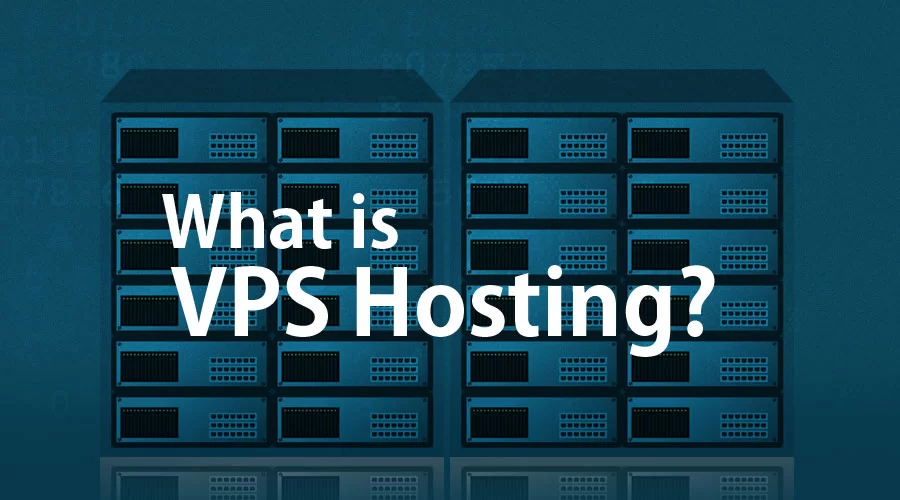With the ever-increasing importance of establishing an online presence, selecting the right web hosting solution becomes crucial. Among the various numerous options available, two prominent choices for budget hosting are VPS hosting and shared hosting. Shared hosting entails multiple websites sharing resources on a single server-machine, offering simplicity and affordability, making it an ideal choice for individuals and small businesses starting to establish their online presence. In contrast, VPS hosting emerges as a more advanced option, harnessing virtualization technology to provide users with their isolated virtual server within a physical server.
Offering advanced performance, constant flexibility, and on-demand scalability, VPS hosting caters to the needs of businesses with higher traffic and specific customization requirements. Understanding the unique characteristics of these hosting options is essential in making an informed decision that aligns with your website’s needs and goals.
Table of Contents
Shared Hosting
Shared hosting is a widely preferred web hosting solution that offers excellent value for individuals and small businesses on a budget. This cost-effective option allows multiple websites to share the resources of a single server. With shared hosting, website owners can enjoy affordable rates without compromising functionality or reliability. The hosting provider takes care of server maintenance and management, allowing users to focus on creating and managing their content. It’s an ideal choice for those starting out or with low web traffic, providing an accessible and budget-friendly hosting service. While shared hosting may have some performance limits due to resource sharing, it remains an attractive option for cost-conscious users seeking a reliable online presence without breaking the bank.
Virtual Private Server (VPS) Hosting
VPS hosting is an attractive option for web hosting, offering a blend of affordability, reliability, and security. With VPS hosting, you get your own virtual server within a larger server infrastructure. This setup ensures that your website operates independently, keeping your data private and secure. You have full control over your server environment, allowing you to customize settings and install programs that meets your specific needs. As your online presence grows, VPS hosting scales with you, making it easy to allocate additional resources to handle increased web traffic. It’s a feature-rich and flexible hosting solution that delivers great value for individuals and businesses seeking a robust online presence.
What Is The Difference?
Shared hosting and VPS hosting possess significant differences in their underlying infrastructure and the level of control they provide to users. With shared hosting, multiple websites reside on the same server, sharing its hardware resources such as CPU, RAM, and storage. It is a budget-friendly option for websites, which do not experience high amount of traffic. In shared hosting, the hosting provider manages server maintenance and administration, relieving users of technical responsibilities.
In contrast, VPS hosting offers users their own virtual server within a larger physical server infrastructure. Each virtual server operates independently, providing dedicated resources and greater control over the hosting environment. VPS hosting allows users to customize server settings, install software, and even choose the operating system to match their specific needs. This option is ideal for businesses with higher traffic, specific software requirements, or a need for enhanced security and privacy.
The key distinction lies in the level of resource sharing and control. Shared hosting is a more economical choice, as the costs are divided among multiple users sharing the same resources. However, it can result in limited performance during peak traffic periods and fewer customization options compared to VPS hosting. VPS hosting, on the other hand, offers dedicated resources and greater flexibility, but at a higher cost.
Choosing between shared hosting and VPS hosting ultimately depends on your specific requirements and budget. Consider the anticipated web traffic, customization needs, and the level of control you desire. Understanding the differences between these hosting options allows you to make an educated decision that aligns with your website’s unique needs and goals.


Which Is Better?
In comparison, VPS hosting offers several significant advantages that make it a superior choice for certain scenarios. Firstly, VPS hosting provides greater control and customization options. With a dedicated virtual server, users have full root access and administrative privileges, allowing them to install and configure software, adjust server settings, and personalize the hosting environment to their specific needs. This level of control is particularly beneficial for businesses with specific software requirements, advanced technical demands, or the need for unique server configurations.
Secondly, VPS hosting offers better performance and scalability compared to shared hosting. With dedicated resources, including CPU, RAM, and storage, VPS hosting ensures consistent and reliable performance, even during peak traffic periods. The isolated server environment prevents the actions of other websites from impacting your website’s performance. Additionally, VPS hosting allows for easy scalability. As your website grows and experiences increased traffic, you can easily allocate more resources to accommodate the growing demands, ensuring optimal performance and user experience.
Furthermore, VPS hosting provides enhanced security and privacy. The isolation of each virtual server means that your website’s data remains separate from other users on the server, reducing the risk of security breaches or data compromises. With VPS hosting, you have greater control over security measures and can implement advanced security protocols to protect your website and sensitive information.
Lastly, VPS hosting offers a high trustworthyness. Since resources are dedicated only to your virtual server, you are not affected by the activities or performance of other websites. This ensures that your website experiences minimal downtime and operates with ease, even during periods of heavy traffic or resource-intensive tasks.
In summary, VPS hosting surpasses shared hosting in terms of control, customization, performance, scalability, security, and reliability. However, it is important to note that VPS hosting typically comes at a higher cost (including maintanane) compared to shared hosting. Therefore, the decision to choose VPS hosting should be based on the specific needs, technical requirements, and budget constraints of your website or business.
Conclusion
Choosing between shared hosting and VPS hosting ultimately depends on your needs and financial capabilities. Consider the anticipated web traffic, customization needs, and the level of control you desire. Understanding the differences between these hosting options allows you to make an educated decision that aligns with your website’s unique needs and goals.
Do You Want To Read Extensivly On Website Related Subjects?